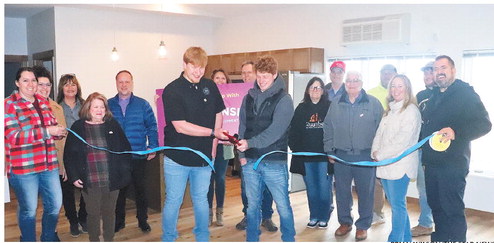Small businesses can benefit from federal stimulus package
A $2 trillion stimulus package designed to support individuals and businesses during the coronavirus pandemic has been signed into law by President Trump.
The measure offers $377 billion in federally guaranteed loans to small businesses and establishes a $500 billion government lending program for distressed companies.
It also increases unemployment benefits for laid-off or underemployed workers and provides a $1,200 payment for adults earning up to $75,000 per year or married couples earning up to $150,000. Families falling under these thresholds would also receive $500 per child.
The following areas of the Coronavirus Aid, Relief and Economic Security (CARES) Act directly benefi t small businesses. Additional resources are available through the Small Business Administration (SBA) at www.sba.gov and its partner Small Business Development Centers (SMBC) at wisconsinsbdc.org.
Disaster loan and emergency grants
SBA’s Disaster Loan program provides small businesses with loans of up to $2 million to recover and rebuild after disaster losses.
Personal guarantees on loans below $200,000 are waived, as well as the requirement that the applicant must have been in business for one year and the credit elsewhere requirements.
Emergency Grants of $10,000, are also available to provide paid sick leave to employees, maintain payroll, meet increased costs to obtain materials, make rent or mortgage payments, and repay obligations that cannot be met due to revenue losses. Funds will be distributed within three days and come in the form of a loan advance, however, the advance does not need to be repaid, even if the applicant is subsequently denied.
Applications can be submitted online at https:// www.sba.gov/funding-programs/disaster-assistance Paycheck Protection Program
Loans made under the U.S. Small Business Administration’s Paycheck Protection Program (SBA PPP) and provides $349 billion to fund loans.
The loans authorized are for a maximum of 2.5 times average monthly payroll or $10 million, whichever is less, and have a maximum interest rate of 4%. They can be used for payroll, group health care benefits, salaries and commissions, mortgage interest, rent, utilities and debt interest.
Payments on the loans will be deferred for at least six months, and SBA will forgive amounts paid in the first eight weeks after receiving a PPP loan for payments made towards qualified expenses predating Feb. 15, 2020. Forgiveness will be reduced, proportionally, should the recipient reduce workforce or wages, unless the reduction occurred within 30 days after passage of the Act and was reversed through rehiring or restoration of wages before June 30, 2020.
To be eligible for an SBA PPP loan, businesses must have 1,000 employees or less. Sole proprietors, independent contractors and other self-employed individuals are also eligible.
A list of SBA-approved lenders can be found here: https://www.sba.gov/funding-programs/loans/paycheck- protection-program Express Loans
The Act also increases the maximum amount of an SBA Express Loan – a Section 7(a) loan from a qualified SBA lender that is processed faster than a regular loan. The maximum will be increased from $350,000 to $1 million through the end of this year.
Assistance
The Wisconsin Small Business Development Network, a resource partner of the SBA, is helping small businesses apply for the loans and has created a web page at https://wisconsinsbdc.org/services/covid- 19/ to help businesses understand the qualifications and application process.
Consultants across the network’s 13 locations are working remotely to assist clients.




